Testbash Brighton 2019 Conference Day Part II of II
Here are some of my key learnings on the last 3 talks I was able to attend at Testbash Brighton 2019 before I had to leave early to catch my flight back home.
Gareth Waterhouse and Lindsay Strydom: Building Communities at Scale
2010:
- 12 QAs
- 1 location
- Around 5 teams
- “Where we’re going, we don’t need a community”
Currently:
- They currently have around 120QAs (this number fluctuates due to contractors)
- 4 locations - 3 in the UK, 1 in India
- Different tech stacks/languages
- Around 70 dev teams
Dealing with growth:
- Before, they would send meeting invites for 16:30 UK time, this was roughly 22:00 in India.
- Then they started having 2 clocks in the room, so they could consider time differences when scheduling meetings
They faced challenges in scheduling meetups for the testing community:
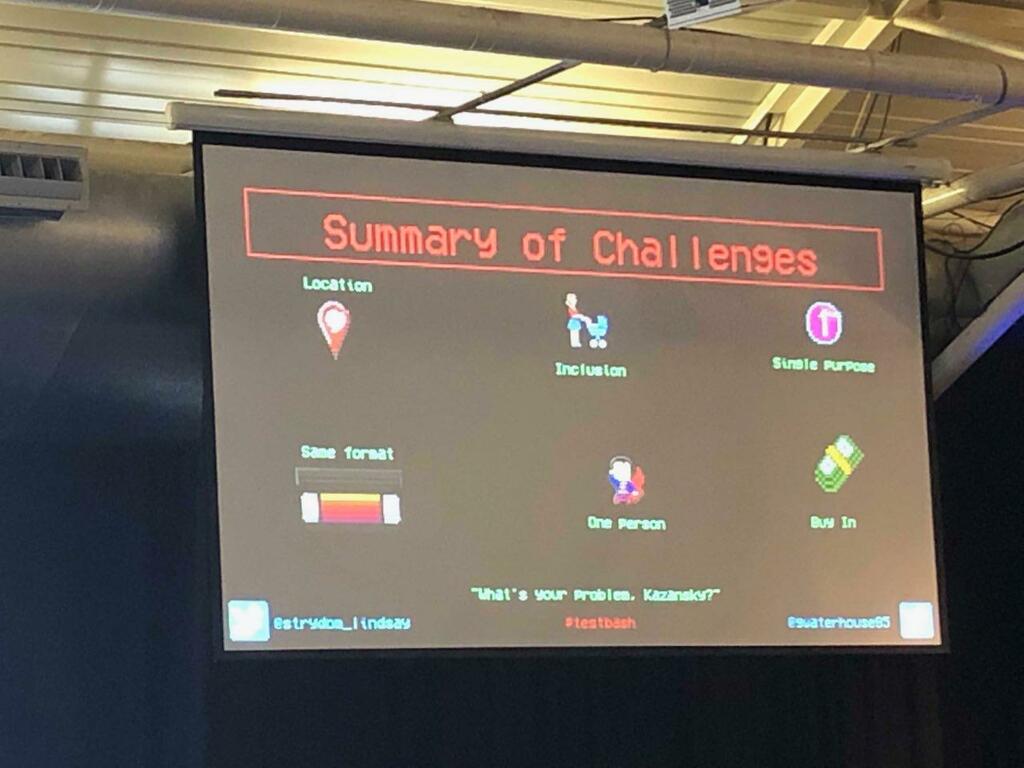
After Testbash 2018, Lindsay felt inspired. A few days away from the office gave her time to reflect about the current lack of a testing community.
They then scheduled an unworkshop to discuss exactly what they didn’t want in a testing community.
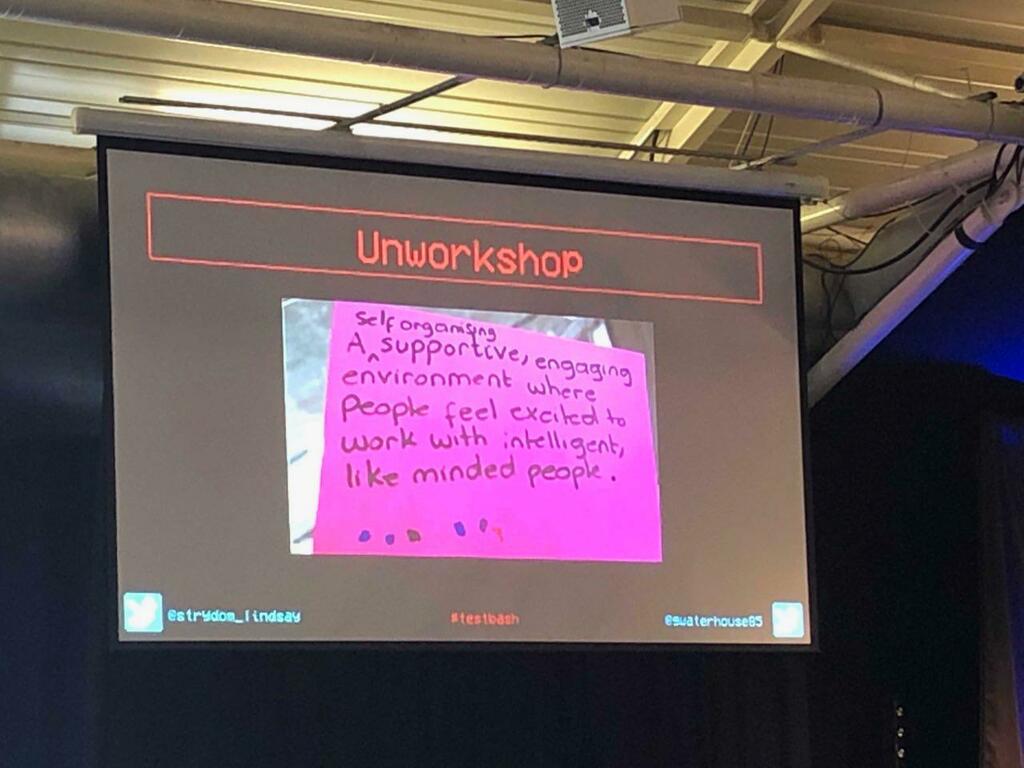
They looked into overcoming challenges:
- Different formats e.g. testsphere, eating lunch together etc.
- Multiplate locations
- Different times of day
- Community driven (not just by one person)
- Increase publicity for the test community
Eric Proegler: Continuous Performance Testing
Sites go down because of arrival rate –> it’s because of the sudden arrival of lots of users.
Common approach to load testing, gradually ramp up the numbers of users like it’s a stairs approach. But this doesn’t happen in real life.
I took a lot of photos during this presentation and I wasn’t fast enough to write too many notes during this presentation.
Here are some of the slides that stood out to me:
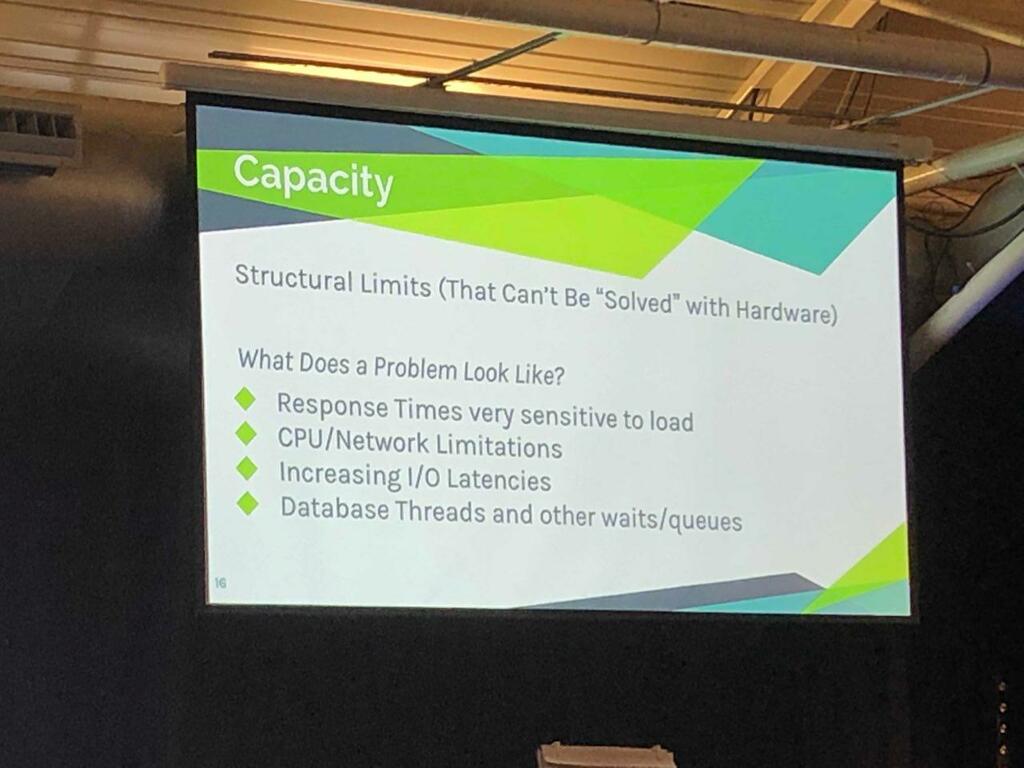
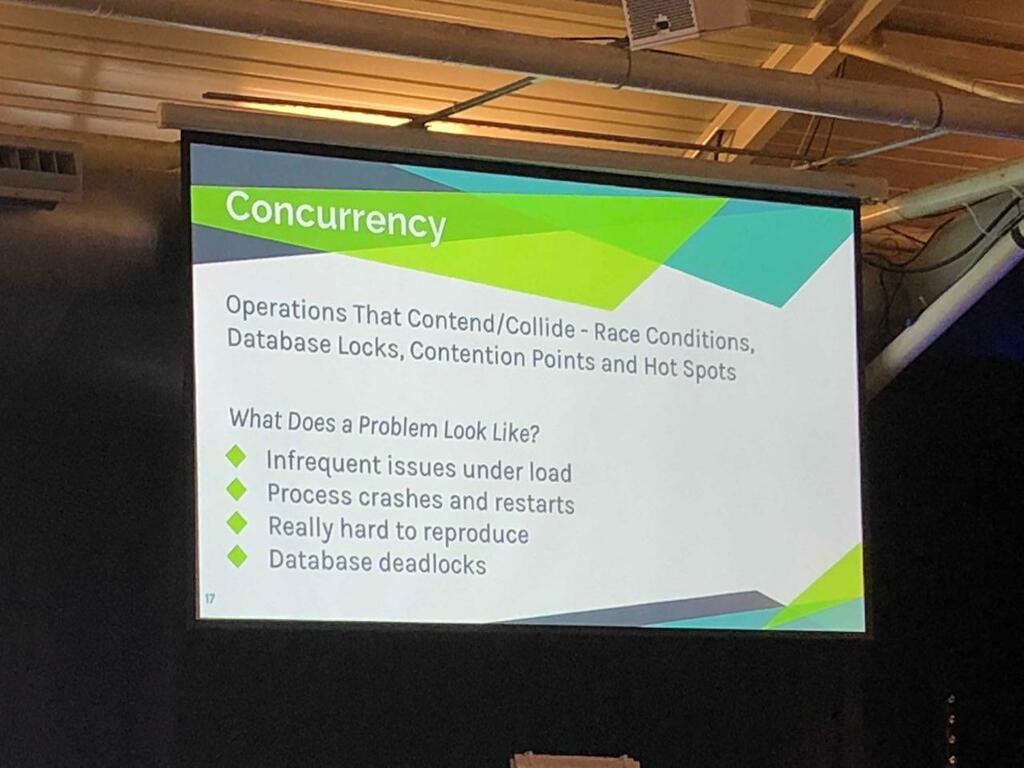

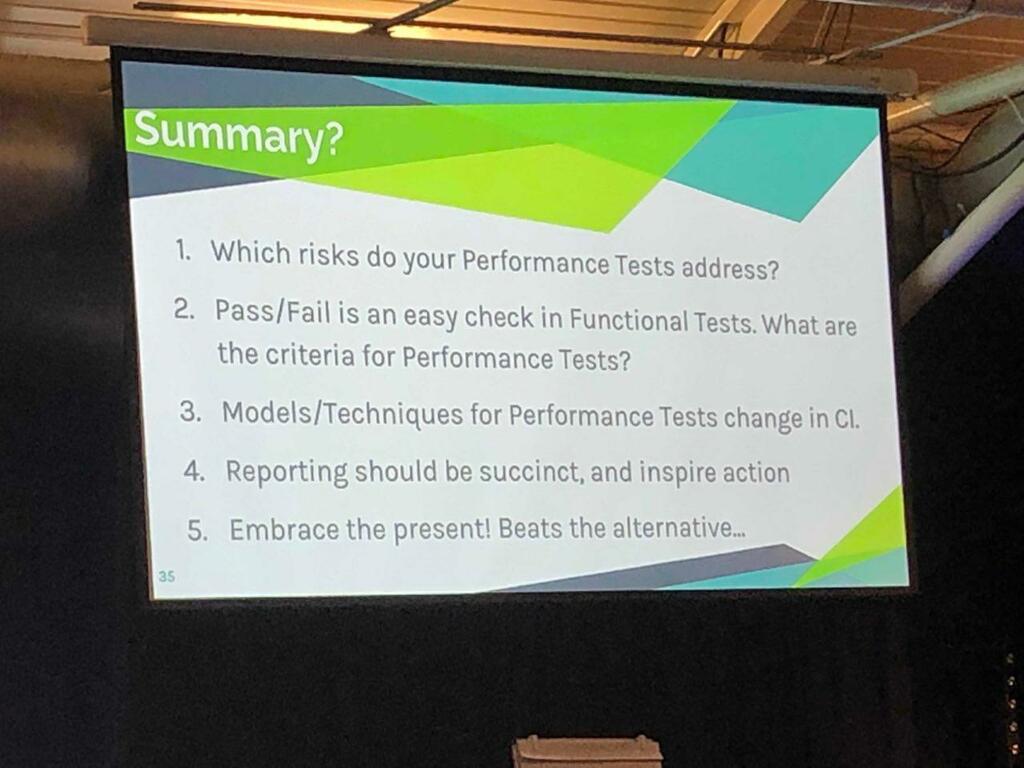
Conor Fitzgerald: Benefits of exploring other industries and disciplines
Does the culture of a company affect the quality of the testing?
3 different company cultures that Conor experienced:
Controlled, conservative, checking
Energy, empathy, exploring
Autonomy, Anarchy, Automation (he initially thought it was the 3Es)
Discovered CDT, Principle 4 stood out to Conor:
Projects unfold over time in ways that are often not predictable.
Aviation:
- Focus on preventing crashes
- Checklists (e.g. pilot checklists before takeoff) –> checklists are also used in healthcare and construction
- Pairing: Modern aircraft designed to be flown by 2< people because it’s mentally taxing to fly
- Blameless culture
- A culture of questioning - people are encouraged to ask questions.